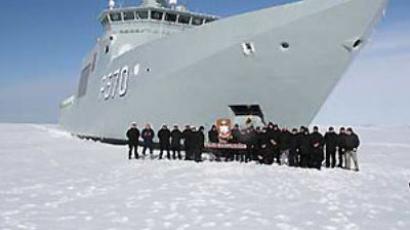Perestroika deception created mistrust of present day
There have been major thaws in East-West relations before. The most notable was brought about by Mikhail Gorbachev's perestroika movement that brought the end of the Cold War and attempted to give socialism a human face.
The period of the 1980s in the Soviet Union, which saw the introduction of perestroika by Gorbachev, received many labels worldwide.
However, according to former Georgian president Eduard Shevarnadze, who was Soviet Foreign Minister at that time, the new Soviet ideology feted in the West was nothing more than a fight for survival in the USSR.
“It was caused by our internal problems. The country was on the verge of economic collapse, people were starving. So we had to introduce changes to the economy. Only then did the foreign policy come,” remembers Eduard Shevarnadze.
As life changed inside the country, so too did international affairs. Moscow was set on a drive of warming relations with the West, especially the US. One of the reasons behind this was a desire to cut down on military expenses.
Shevarnadze, one of perestroika’s main ideologists, says this task seemed almost impossible at first.
“US President Reagan described the USSR as the Evil Empire. And during the first meeting between Gorbachev and Reagan in Geneva, Gorbachev called me and said ‘It is absolutely impossible to hold a dialogue with this nation. Get my plane ready, we’re going back to Moscow.’ It was only during their second meeting that they managed to break the ice,” remembers Eduard Shevarnadze.
Soviet troops pulled out of Afghanistan, Warsaw Pact countries significantly altered their military doctrine to a defensive one, and Washington and Moscow signed a treaty on reducing their nuclear arsenals. In the case of the latter, the USSR had to destroy more than twice as many warheads than the US. Some historians believe that perestroika gave much too much to the West.
“People in the Pentagon and other peculiar agencies in Washington were amazed. They could not believe all these the concessions coming from Moscow. But they did not reciprocate, because they regarded these concessions as reparations of the country that lost the Cold War,” says the US politologist and journalist Melor Sturua.
“We pulled out from Afghanistan in 1989. We withdrew our forces from Eastern Europe. We signed a lot of treaties with the US. From the western point of view there was nothing to pay, for it was like returning back to normal, from their point of view. But from the point of view of the Soviet Union it was a far greater push towards the West,” explains politologist Mark Shkundin.
The result of such changes was not quite what the Kremlin expected. Perestroika was designed to revive socialism, but instead, as many historians say now, it did quite the opposite.
Many historians believe that perestroika became one of the most important factors that led to the dissolution of the Soviet Union. Even though the giant has been gone for almost two decades now, it is said that the consequences of perestroika foreign policy are still felt today.
Well-known journalist and professor at Minnesota University Melor Sturua believes that the current difficulties between Moscow and Washington are a direct result of the West’s post-perestroika attitude.
“They promised Gorbachev and Yeltsin that they would not move NATO to the borders of the former Soviet Union. But they did it,” points out Melor Sturua.
“They took Eastern Germany, then Warsaw pact countries, then the Baltic States. Then they began to push into Ukraine and Georgia. Every push creates a counter-push. And that’s why we had this six-day war in Georgia.”
Whether perestroika failed because of those who drove it or was spoiled by broken promises from the West is still being debated. Analysts are unanimous, however, that its demise helped cause the ensuing political and economic chaos in Russia in the 1990s.
Ironically, its ultimate external goal – to normalize ties between Washington and Moscow – in time brought the opposite result.














